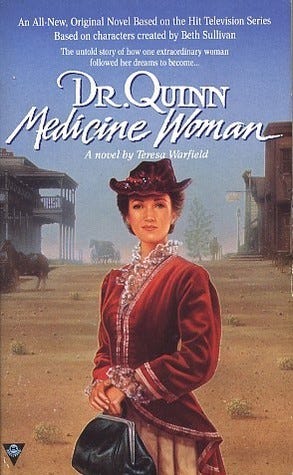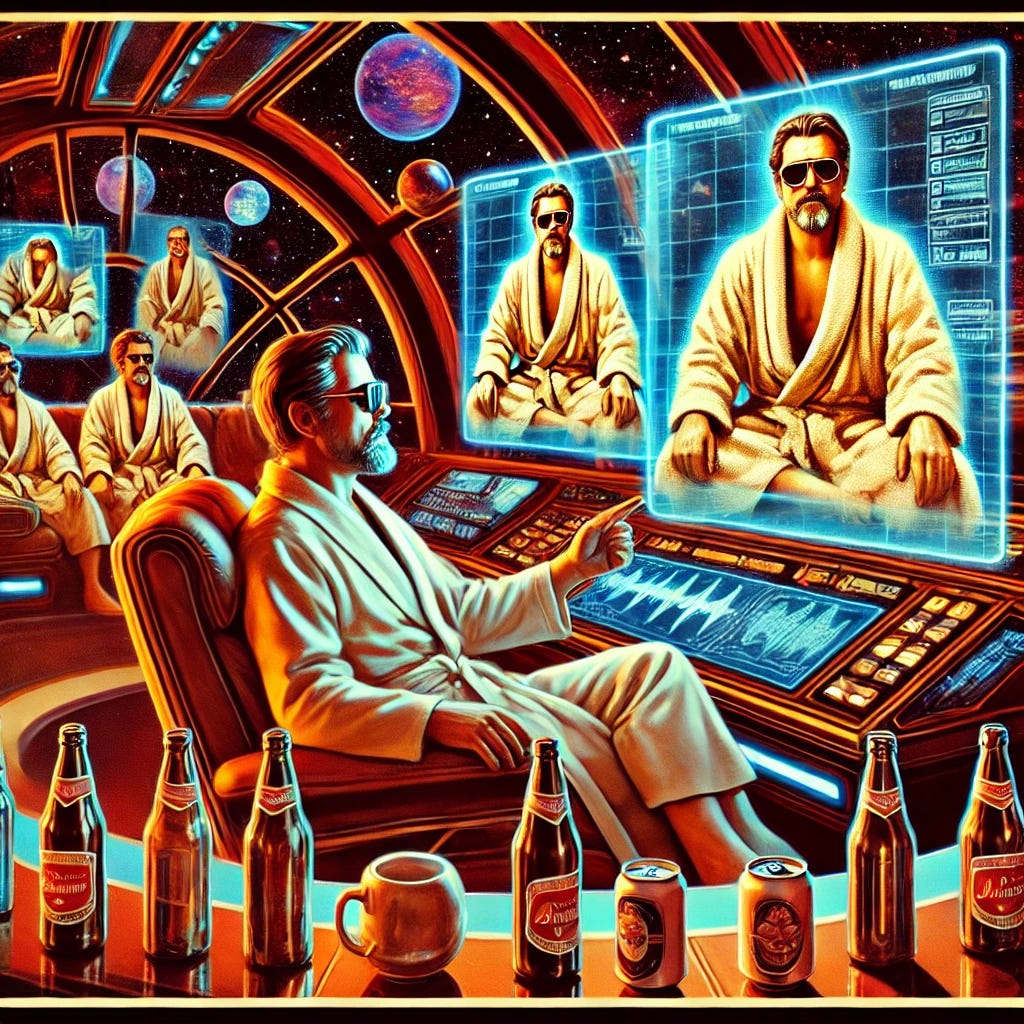Back to the Future: How AI Will Return Us to the Golden Age of Medicine
What if the next big revolution in healthcare isn't about new technology, but about bringing back something we lost along the way?
Remember Dr. Quinn, Medicine Woman? Not the TV show itself (though I confess to watching it), but the concept it portrayed – a doctor who knew their patients personally, understood their lifestyle choices, and knew exactly who was sneaking an extra drink at the saloon. That doctor had no narrow specialization but dealt with everything that came their way, right there and then.
Then science evolved, and medical knowledge expanded so much that doctors had to specialize. It now takes years to become a narrow specialist, and we've lost our "family doctor." Instead, we bounce between different specialists who view us as an interesting case of liver dysfunction rather than a whole person. After all, they only have 20 minutes for the appointment.
So here's where we are:
Then: A doctor knew you personally but wasn't highly specialized
Now: A doctor doesn't know you personally but is highly specialized
And general practitioners? Let's be honest, a lot of people barely considered them as "real doctors" anymore (neither knowing you personally nor being specialized – worst of both worlds)
But Here's Where It Gets Interesting
While everyone's busy predicting how AI will optimize administrative processes, improve decision-making, automate paperwork, and enhance navigation through the healthcare system (I've compiled a list of these traditional predictions here), I think we're all missing something much more revolutionary.
What's really changing?
We now have more data about people's health outside the hospital than ever before
Any doctor can access tools that effectively replace specialized knowledge (decision support systems)
The Doctor of the Future Looks More Like... the Doctor of the Past?
I believe the future doctor will be more like that family doctor from the past, but with a twist that would make Dr. Quinn's head spin.
Think about what revolutionized other consumerized industries – the ability to group people into "look-alike" audiences. Recommendation systems group people by similar tastes in music; in healthcare, we'll group them by similar health factors (genetics, lifestyle, gender, weight, and diagnoses).
Meet the New Specialists
Imagine a doctor who specializes not in a body part or disease but in a TYPE of person. For example:
The "Typical Joe" specialist: Treats men 40-50, with hypertension, stressful jobs, low activity, excess weight, and a grumpy disposition that'll lead to a heart attack if they don't start seeing a therapist soon.
The "Typical Jane" specialist: Focuses on pre-menopausal women with hypothyroidism, two teenage kids, two jobs, morning running routines, and anxiety from trying to fit 48 hours into a 24-hour day.
Why This Changes Everything
This doctor will:
Read research specific to their patient type
Communicate with pharma companies about their cohort
Market themselves as "The Best Typical Joe Doctor You'll Find"
Provide preventive, personalized, predictive health management
Sure, AI will do most of the heavy lifting, but the doctor will play a crucial emotional, supervisory, and guiding role. They'll constantly improve their methods, measure what works, and gather ideas from patients about what helped them.
Imagine the future medical conferences:
"How I Got Joe to Increase His Activity Level by Firing His Gardener"
"Prevention Strategies for the Overachieving Jane: Beyond Just Saying 'Relax More'"
The Economics Finally Make Sense
Here's the kicker – this model finally makes preventive care economically viable. Why? Because you're not trying to prevent random issues in random patients. You're working with similar patients, making prevention measurable, predictable, cost-effective, and efficient.
And yes, 80% of interactions will probably be online or even asynchronous. These doctors will likely work through some kind of platform (guess who wants to build it?) that gives them access to work with these cohorts.
The Revolution Is Coming
In the next decade, we're looking at a complete revolution in medicine. Just in time for a new generation of doctors who never wanted to spend 10 years studying kidney function anyway. They'd much rather study people.
And you know what's fascinating? This might actually bring us full circle – back to the kind of holistic care Dr. Quinn provided, but powered by AI and data instead of just intuition and personal knowledge.
What This Means for Healthcare Startups
For those of us building in the health tech space, this shift presents enormous opportunities. The platform that successfully connects these new-type specialists with their perfect patient cohorts, while providing the AI tools to support their work, could become the foundation of future healthcare delivery.
Think about it: We're not just talking about optimizing the current system – we're talking about fundamentally restructuring how healthcare is delivered, specialized, and consumed.
The future of healthcare isn't just about better tools for the current system. It's about a completely new way of thinking about medical specialization, one that might ironically look more like the past than the present.
P.S. And for those who think this is too radical – yes, it is. But that's our job as visionary founders: to think about radical changes that could make the world better. Of course, healthcare systems don't change overnight, and the transition will be complex and gradual. Like most legacy systems, healthcare will probably resist change until suddenly – BAM! – the transformation becomes inevitable.
Just think about it: cohort-based healthcare could dramatically reduce insurance costs, make preventive care economically viable, and deliver measurably better outcomes. As a founder whose mission is to create statistically significant, measurable positive impact for 100M people, I believe we need to envision these radical possibilities, even if they seem distant today.
What do you think? Is this a probable future for healthcare? Or do you see a different path forward? I'd love to hear your thoughts on how we might fundamentally reimagine healthcare delivery in the age of AI and data.



